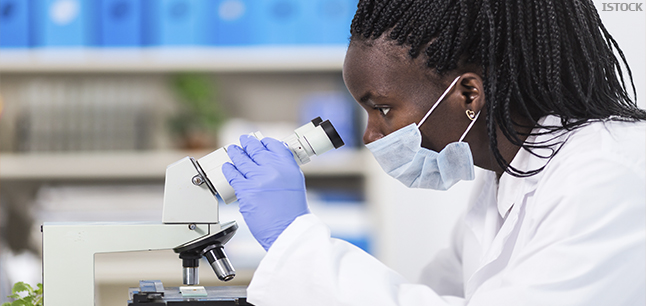
Apprentice laboratory technicians help with scientific analysis, investigation, research, and development.
As a scientific laboratory technician, you must provide all technical help required for the laboratory to function correctly. This allows scientists to concentrate on and perform more complex analytical activities in the laboratory.
You will participate in biological, chemical, physical, and life science laboratory experiments. Therefore, adhering to established procedures and health and safety regulations is essential.
A teaching laboratory technician’s job is identical to that of a research laboratory technician, except that they work at educational institutions, assisting scientific professors, lecturers, and students.
Responsibilities
Throughout your apprenticeship, you may help:
- set up experiments and investigations
- carry out risk assessments
- collect and analyse samples
- prepare solutions, cultures or specimens
- record and present data
- order and control stock
- dispose of chemicals and waste products safely
- clean and maintain equipment.
Salary
- Starting apprentice salaries typically range from £17,500 to £19,000, depending on your qualifications at entry.
- With some experience, you can expect to earn £22,000 to £28,000.
- For senior, management or supervisory roles, salaries can be in the range of £30,000 to £40,000.
Working hours
The working week is usually 38 to 40 hours. Some additional hours may be required and working within some organisations, such as the NHS, may require shifts and on-call duties.
Working environment
You could work in a laboratory.
You may need to wear protective clothing.
Qualifications
Qualifications you can achieve as an apprentice laboratory technician include:
- Level 3 Laboratory Technician – Entry requirements for this level include 5 GCSEs at grades 9 to 4 (A* to C), or equivalent, including English and maths, for an advanced apprenticeship. This qualification will take 24 months to complete.
Skills
On a laboratory technician apprenticeship, you’ll learn:
- science skills
- the ability to work well with your hands
- to be thorough and pay attention to detail
- analytical thinking skills
- the ability to use your initiative
- the ability to work well with others
- thinking and reasoning skills
- knowledge of English language
- to be able to use a computer and the main software packages competently.
Employers
Many public and private organisations employ scientific laboratory technicians. These include:
- hospitals and public health organisations
- environmental agencies
- utility companies
- research and forensic science institutions
- food manufacturing companies
- pharmaceutical and chemical companies.
Professional development
The bulk of the training will take place on the job, under a more senior staff member’s supervision.
CPD is crucial, and the Institute of Science and Technology (IST) conducts programmes and networking conferences throughout the year. It also offers several certification levels and a higher certificate in analytical, chemical, biochemical, and microbiological laboratory techniques.
You may work for the Registered Science Technician Award (RSciTech) via the IST, which officially recognises your knowledge, skills, and professionalism. The IST is also authorised to grant Registered Scientist and Chartered Scientist certifications as your career progresses. Professional registration is a peer-review process that enables you to demonstrate your talents, knowledge, and competence, irrespective of your qualifications.
Career prospects
Your career is likely to develop via the following route:
- assistant technician
- technician
- senior/lead technician
- team leader technician
- laboratory manager.
As you grow, you will be given more duties, including team supervision and laboratory administration. As a result, you’ll be undertaking more complex tasks that may need some analysis and spending more time in the office.
To progress, you may need to go to a larger company or a position in a field where advancement is more defined. In addition, because teams are often larger, they have more responsibilities and management levels.
Obtaining other degrees, such as a Masters or PhD, as well as getting specialised skills, may enable you to join the area of scientific research.
